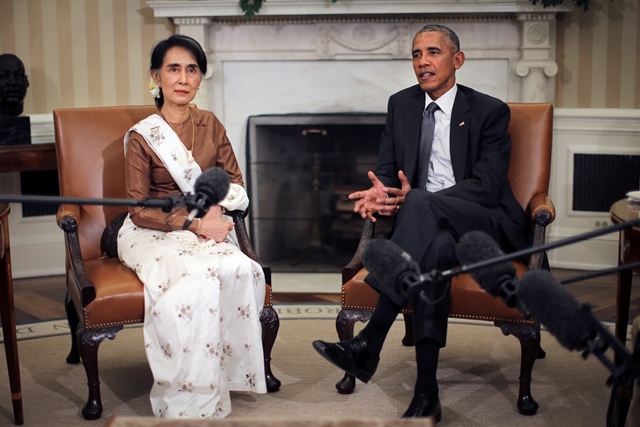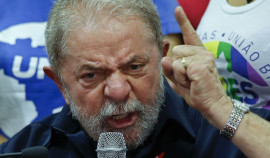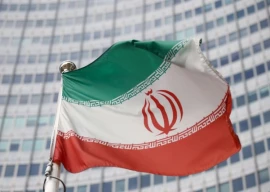
With Suu Kyi no longer an opposition figure, the United States is weighing a further easing of sanctions against Myanmar, formerly known as Burma, as Obama looks to normalize relations with a country Washington shunned when it was ruled by a military junta.
Suu Kyi also was expected to meet other U.S. officials including Secretary of State John Kerry and senior members of Congress.
"Before it was very much encouraging her (Suu Kyi) and supporting her in her role as someone pushing for increased democracy. Now they (U.S. officials) are meeting someone in charge of the government," said Murray Hiebert, a Southeast Asia expert at Washington's Center for Strategic and International Studies.
Obama on 9/11: Diversity one of America's 'greatest strengths'
Obama is expected to consult with Suu Kyi on whether to further ease U.S. sanctions to help investment and the democratic transition in her country, the White House said.
As Suu Kyi arrived at the White House, Obama issued a statement saying he would reinstate Myanmar to the Generalized System of Preferences (GSP), which provides duty-free treatment for goods from poor and developing countries.
Myanmar was removed from GSP benefits in 1989 following pro-democracy uprisings a year earlier that were brutally suppressed by the ruling military junta.
The United States eased some sanctions against Myanmar earlier this year to support political reform but maintained most of its economic restrictions with an eye toward penalizing those it views as hampering the democratically elected government.
With Suu Kyi in Washington, officials in Myanmar said the government there was making a push to overhaul rules on new foreign investment this week.
New investment approvals have fallen since Suu Kyi took power in April and some businesses and investors have criticized her for failing to prioritize the economy.
Separately, a group of 46 non-governmental organizations circulated a letter they wrote to Obama on Monday expressing concern about reports of plans to ease sanctions on Myanmar while human rights abuses by the military and against Rohingya Muslims persisted.
"While incremental progress is being made in Burma, it is vital that the U.S. continue to act in support of Burma's people, particularly those still suffering under the current government," the letter said.
"To lift sanctions prior to tangible change for suffering communities would be a disservice to those vulnerable peoples who deserve international protection," it said.
United States, Israel set to ink record $38 billion military aid deal
On Wednesday, Senator Bob Corker, the chairman of the influential Senate Foreign Relations Committee, criticized what he described as Suu Kyi's "dismissive" reaction to concerns he had raised about her country's record on human trafficking.
"After witnessing her lack of regard for Burma's dismal track record on this issue, I plan to pay very close attention to her government's efforts to prevent innocent human beings from being trafficked and sold into forced labor and sex slavery," Corker said in a statement released to Reuters after a breakfast meeting with Suu Kyi and Vice President Joe Biden.
CHALLENGES
Myanmar's military stepped back from direct control of the country in 2011 after 49 years in power, but maintains a commanding role in politics, controlling 25 percent of the seats in Parliament and leading three key ministries.
Suu Kyi is barred from being president under a military-drafted constitution because her sons are not Myanmar citizens. She serves instead as the country's de facto leader by holding the positions of foreign minister and state counsellor.
She faces the challenge of guiding Myanmar's relationship with the United States and neighboring China, which enjoyed a preferential relationship with the military government.
"The U.S.-Myanmar dynamic, it is not a close strategic relationship to the exclusion of China but introducing more balance," said Richard Horsey, an independent political analyst in Yangon.
There are also formidable obstacles at home for the popular Nobel laureate.
Suu Kyi has been criticized by rights groups for failing to address the plight of the country's stateless Rohingya minority. About 125,000 remain confined to squalid camps on the country's western coast following violence between Buddhists and Muslims in 2012.
Last week, a commission Suu Kyi set up and charged with making recommendations on the situation and which is led by former U.N. Secretary-General Kofi Annan traveled to Myanmar for the first time.
"It is clear that in setting up the Annan Commission, Suu Kyi is not merely looking for some diplomatic cover, but is making Rakhine State a priority and is serious about taking steps to address the situation," Horsey said.

1732071267-0/lana-(2)1732071267-0-165x106.webp)
1727242355-0/Diddy-(1)1727242355-0-165x106.webp)

1732063440-0/elon-(3)1732063440-0-165x106.webp)












COMMENTS
Comments are moderated and generally will be posted if they are on-topic and not abusive.
For more information, please see our Comments FAQ